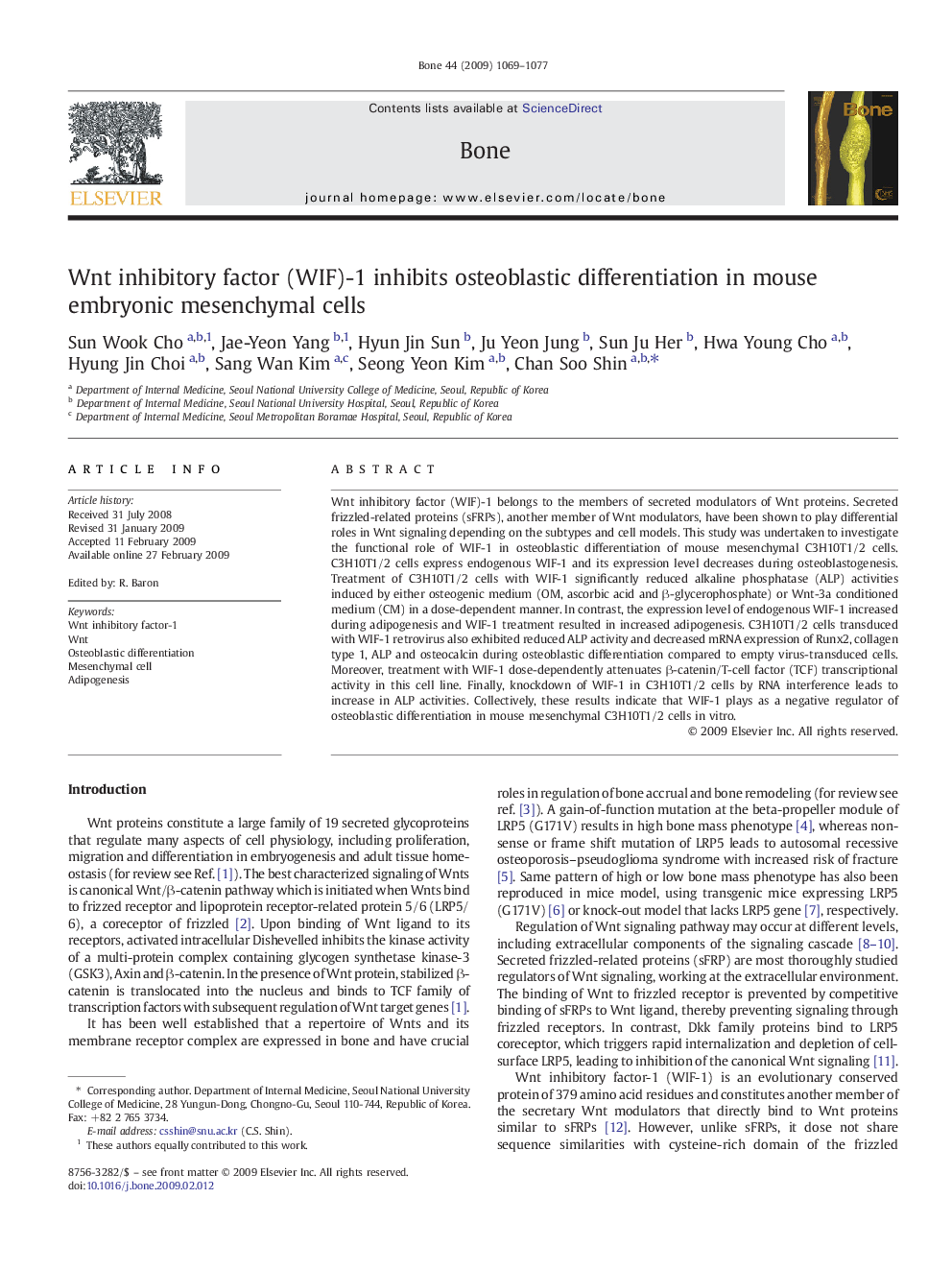| Article ID | Journal | Published Year | Pages | File Type |
|---|---|---|---|---|
| 2780832 | Bone | 2009 | 9 Pages |
Wnt inhibitory factor (WIF)-1 belongs to the members of secreted modulators of Wnt proteins. Secreted frizzled-related proteins (sFRPs), another member of Wnt modulators, have been shown to play differential roles in Wnt signaling depending on the subtypes and cell models. This study was undertaken to investigate the functional role of WIF-1 in osteoblastic differentiation of mouse mesenchymal C3H10T1/2 cells. C3H10T1/2 cells express endogenous WIF-1 and its expression level decreases during osteoblastogenesis. Treatment of C3H10T1/2 cells with WIF-1 significantly reduced alkaline phosphatase (ALP) activities induced by either osteogenic medium (OM, ascorbic acid and β-glycerophosphate) or Wnt-3a conditioned medium (CM) in a dose-dependent manner. In contrast, the expression level of endogenous WIF-1 increased during adipogenesis and WIF-1 treatment resulted in increased adipogenesis. C3H10T1/2 cells transduced with WIF-1 retrovirus also exhibited reduced ALP activity and decreased mRNA expression of Runx2, collagen type 1, ALP and osteocalcin during osteoblastic differentiation compared to empty virus-transduced cells. Moreover, treatment with WIF-1 dose-dependently attenuates β-catenin/T-cell factor (TCF) transcriptional activity in this cell line. Finally, knockdown of WIF-1 in C3H10T1/2 cells by RNA interference leads to increase in ALP activities. Collectively, these results indicate that WIF-1 plays as a negative regulator of osteoblastic differentiation in mouse mesenchymal C3H10T1/2 cells in vitro.
